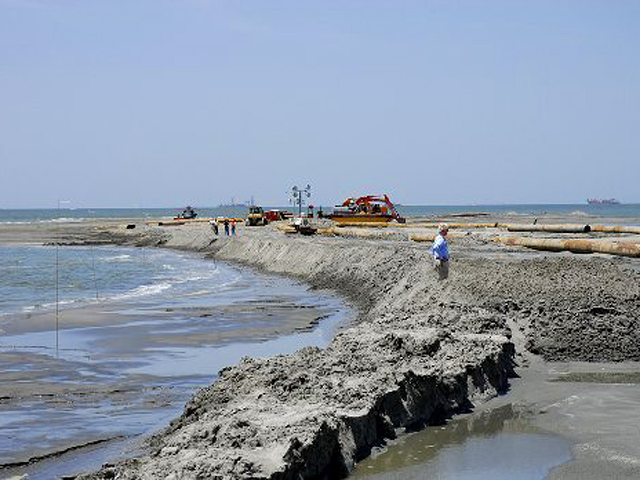A controversial series of sand berms built in the Gulf of Mexico to keep leaking oil from reaching Louisiana’s wetlands has stopped a “miniscule” amount of oil, according to a federal report. According to a presidential commission created to investigate the BP oil spill, the U.S. Coast Guard’s approval of the $360 million barrier was made under “intense political pressure,” especially
from Louisiana Gov. Bobby Jindal, who ordered the berms be constructed despite objections from scientists and federal agencies. The government approved 40 miles of sand berms; so far, about 14 miles of berms have been built at a cost of about $195 million. “The decision to green-light the underwhelmingly effective, overwhelmingly expensive Louisiana berms project was flawed,” the report concluded. Even before the project was approved, critics called it a boondoggle that would rapidly wash away, would use sand needed for other coastal restoration projects, and would alter currents, with adverse effects on oyster beds and other marine life.
Controversial Gulf Sand Berms Did Little to Contain Oil, Report Says
More From E360
-
Cities
‘Sponge City’: How Copenhagen Is Adapting to a Wetter Future
-
INTERVIEW
On Controlling Fire, New Lessons from a Deep Indigenous Past
-
Solutions
Paying the People: Liberia’s Novel Plan to Save Its Forests
-
OPINION
Forest Service Plan Threatens the Heart of an Alaskan Wilderness
-
INTERVIEW
Pakistan’s Solar Revolution Is Bringing Power to the People
-
Food & Agriculture
In Uganda, Deadly Landslides Force an Agricultural Reckoning
-
Energy
Why U.S. Geothermal May Advance, Despite Political Headwinds
-
Food & Agriculture
In War Zones, a Race to Save Key Seeds Needed to Feed the World
-
Climate
Lightning Strikes the Arctic: What Will It Mean for the Far North?
-
RIVERS
A Win for Farmers and Tribes Brings New Hope to the Klamath
-
Solutions
Deconstructing Buildings: The Quest for New Life for Old Wood
-
NATURAL DEFENSES
How Restored Wetlands Can Protect Europe from Russian Invasion
